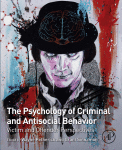

Most ebook files are in PDF format, so you can easily read them using various software such as Foxit Reader or directly on the Google Chrome browser.
Some ebook files are released by publishers in other formats such as .awz, .mobi, .epub, .fb2, etc. You may need to install specific software to read these formats on mobile/PC, such as Calibre.
Please read the tutorial at this link: https://ebookbell.com/faq
We offer FREE conversion to the popular formats you request; however, this may take some time. Therefore, right after payment, please email us, and we will try to provide the service as quickly as possible.
For some exceptional file formats or broken links (if any), please refrain from opening any disputes. Instead, email us first, and we will try to assist within a maximum of 6 hours.
EbookBell Team

5.0
60 reviewsThe Psychology of Criminal and Antisocial Behavior: Victim and Offenders Perspectives is not just another formulaic book on forensic psychology. Rather, it opens up new areas of enquiry to busy practitioners and academics alike, exploring topics using a practical approach to social deviance that is underpinned by frontier research findings, policy, and international trends.
From the relationship between psychopathology and crime, and the characteristics of catathymia, compulsive homicide, sadistic violence, and homicide victimology, to adult sexual grooming, domestic violence, and honor killings, experts in the field provide insight into the areas of homicide, violent crime, and sexual predation. In all, more than 20 internationally recognized experts in their fields explore these and other topic, also including discussing youth offending, love scams, the psychology of hate, public threat assessment, querulence, stalking, arson, and cults.
This edited work is an essential reference for academics and practitioners working in any capacity that intersects with offenders and victims of crime, public policy, and roles involving the assessment, mitigation, and investigation of criminal and antisocial behavior. It is particularly ideal for those working in criminology, psychology, law and law enforcement, public policy, and for social science students seeking to explore the nature and character of criminal social deviance.